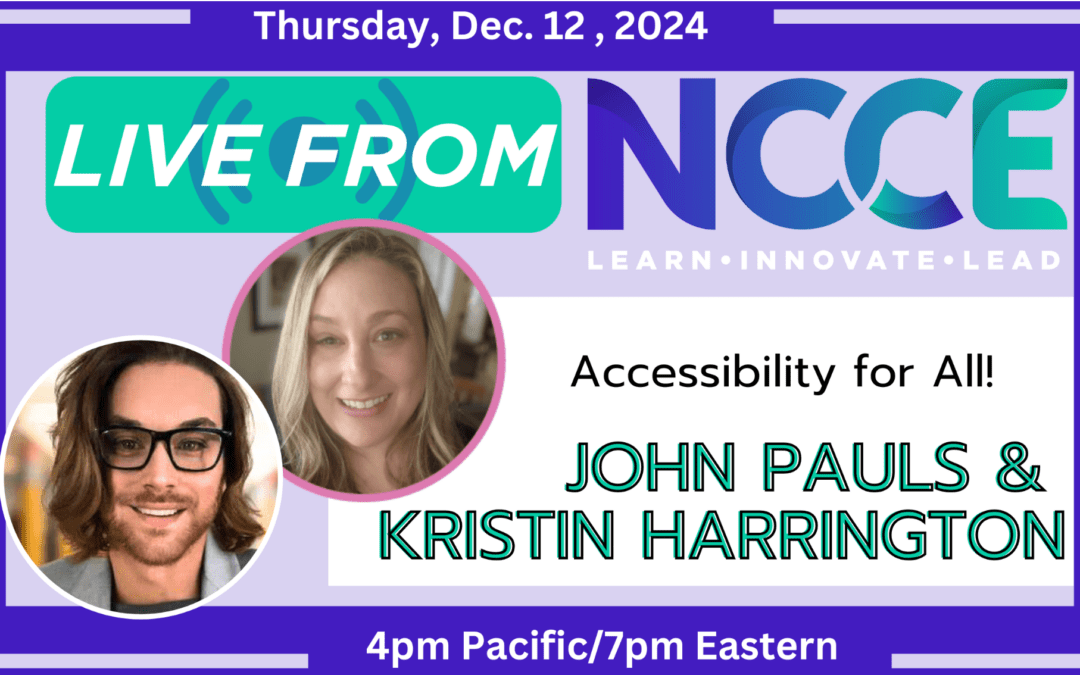The recent Live from NCCE, “Accessibility for All,” brought together two dynamic presenters, Kristen Harrington and Dr. John Pauls, to share their expertise on how to improve accessibility in education. Both seasoned accessibility advocates and NCCE professional learning specialists Kristen and John provided practical strategies, insight into compliance standards, and the importance of Universal Design for Learning (UDL).
Why Accessibility Matters
Accessibility is much more than mere compliance; it is about privacy, independence, and equity for all learners. This session reminded participants of an educator’s responsibility to make certain that all students, regardless of their ability, have equal access to resources and opportunities. This is reinforced in the new changes within ADA Title II, which dictates that compliance with WCAG 2.1 Level AA will be expected by 2026 for larger institutions and 2027 for smaller ones.
Practical Accessible Design Tips
Kristen Harrington provided some very practical tips to make accessibility easier. Among them was the use of color contrast checkers, such as WebAIM, to make sure text is readable. Something as simple as having enough contrast between the text and the background-a black text on a white background-can greatly increase accessibility for visually impaired users.
Key takeaways:
- Contrast ratios should be at least 4.5:1 for readability.
- Tools like WebAIM’s contrast checker can make it easy to verify compliance.
- Adjustments, such as bold or larger text, can improve accessibility when contrast is insufficient.
- Universal Design for Learning (UDL) Framework
Compliance Meets Creativity
Although accessibility standards like WCAG provide a minimum threshold, Kristen and John invited educators to think beyond them when it comes to creative inclusivity. For instance:
Use choice boards to allow students to decide how they will interact with content.
Include symbols and graphics to aid in communication and comprehension. Incorporate teambuilding and empathy activities to establish community.
What’s Next?
This Live from NCCE was only the beginning. Kristen and John introduced additional sessions coming in 2025 in which participants could learn to engage learners using the UDL framework actively. Be sure to stay tuned at ncce.org for more details to come!

